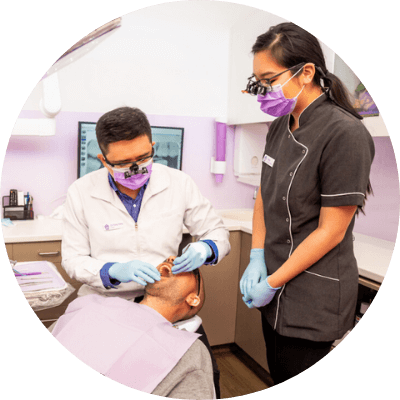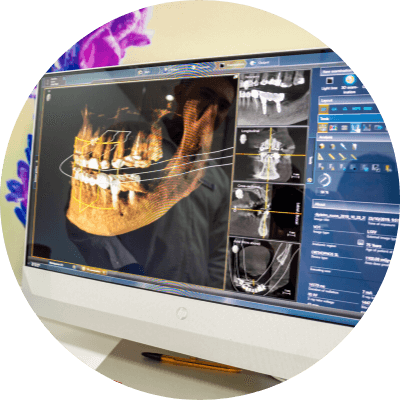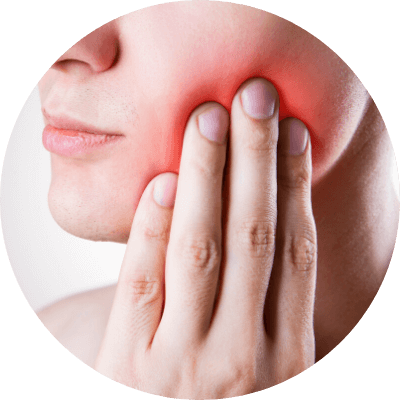Receding Gums: Prevention and Treatment
Receding Gums: Prevention and Treatment

There are many natural ways to treat receding gums, which is one type of periodontal disease. Some can help preventing it, while a number of herbs that can eliminate the associate inflammation and infection. Antioxidants prevent cell oxidation and the fact that periodontal disease is more prevalent in older than younger people, though their dental care is better, is likely due to the body’s inability to fight off bacteria as easily.
Of course a diet rich in healthy foods and nutrients as well as proper oral hygiene are imperative, and that includes regular flossing, along with correct brushing techniques and timing. What you think is 3 minutes probably isn’t, unless you’re using an electric toothbrush that tells you so.
Folic acid ensures the development of normal gum tissue. It binds to endotoxins (the by-products of bacteria) and renders them neutral. It can prevent periodontal disease, as well as assist the healing process after any conventional periodontal treatment.
Grape seed extract is a powerful antioxidant with 20 to 50 times the potency of vitamins C and E. It’s used by naturopaths to treat many inflammatory conditions and for periodontal disease in particular, bacteria is stopped from colonising.
This is important; because it’s this colonisation that makes plaque a biofilm that links to many systemic diseases. Biofilms are highly resistant to antibiotics treatment and are responsible for bacterial endocarditis, Legionnaires’ disease, cystic fibrosis and hospital patient infections from the likes of catheters and implants.

Complex B vitamins like B-12, B-6, riboflavin, niacin, pantothenic acid and thiamine play a significant role in gum health because they are necessary for the production and development of new gum tissue, Coenzyme Q-10 is a natural supplement that increases tissue oxygenation, which helps healthy blood flow to the gums. Clinical trials show that 25mg twice a day reduces plaque and calculus levels in patients suffering periodontal disease.
Nutraceuticals are currently used for the prevention and treatment of receding gum issues. Vitamin C, along with bioflavonoids helps speed up the healing process. Formulas containing extracts of bloodroot also lower plaque and gingival bleeding, while Aloe vera gel relieves the pain and discomfort of compromised tissue.
Clove oil, widely and commonly used for toothache, also reduces the inflammation and infection of gum disease, as does echinacea and goldenseal. The Traditional Chinese Medicine herb, Chi Tong Ning has been used for hundreds of years to treat periodontal diseases, effectively inhibits the growth of damaging bacteria, without causing cell mutation.
The twigs of the Diospyros lycioides are used by Namibians as chewing sticks, and the active compounds have been proven to greatly inhibit decay-causing (cariogenic) bacteria, as well as pathogens responsible for deteriorating gum health.
A bioadhesive formula containing curcuminoids – the natural compounds in turmeric, a member of the ginger family – is a free radical scavenger and hydrogen donor. 500-1000mg a day is highly beneficial in the treatment of gingivitis and gum recession.
The list of traditional plants and herbs for the care of teeth and gums is extensive.
It includes ginger, oats, fennel, thyme, anise, peppermint, myrrh, skullcap and comfrey. Xylitol, a preservative and antimicrobial, is a sugar alternative with substantial gum healing properties. Compositions containing olive leaf and grapefruit seed extracts, as well as calendula flower, black walnut green hulls, and particular oils can provide long-term improvement and permanent solution to gum disease.
DISCLAIMER:
The content has been made available for informational and educational purposes only. New Gisborne Dental House does not make any representation or warranties with respect to the accuracy, applicability, fitness, or completeness of the content.
The content is not intended to be a substitute for professional personal diagnosis or treatment. Always seek the advice of your dentist or another qualified health provider with any questions you may have regarding a dental or medical condition. Never disregard professional advice or delay seeking it because of something you have read or seen on the Site.














